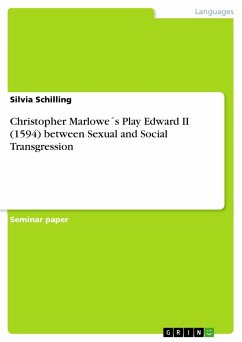The empowering of Marlowe and his literary texts is mostly the product of a general Victorian attempt to introduce the prestigious Renaissance English literature as a sign of English genius and national superiority. Then, there has been a shift in Marlowe criticism, this is not primarily due to a deliberate attempt to represent or misrepresent the playwright, but is rather, in some cases, a result of the critics', scholars', and researchers' self-identification with the playwright which produces relevant meanings. Interpreting Marlowe's plays, accordingly, is closely linked to a set of beliefs, tenets, or ideological attitudes which the critic holds, and this makes the authorial voice of the text (words and their meanings) barely audible against the authority of the reader with their attendant perceptions and attitudes. Indeed, in Marlowe criticism, it is not always the text, or its context, which validates or invalidates one understanding or another. It has to do, as well, with the critic's social, political, and economic position, as well as the place and time in which the literature is approached.
Bitte wählen Sie Ihr Anliegen aus.
Rechnungen
Retourenschein anfordern
Bestellstatus
Storno








